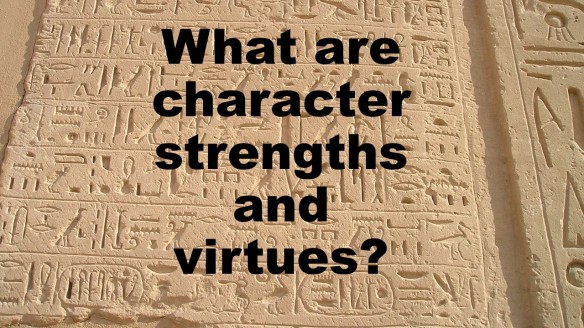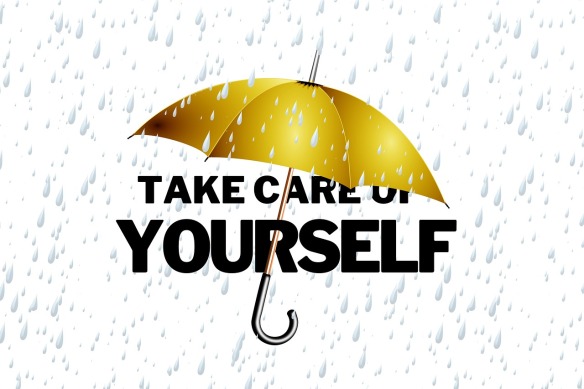Are you satisfied with your life?
By David Joel Miller, MS, Licensed Therapist & Counselor.
Among the people I talk with daily, an almost universal characteristic is that they are unhappy with their lives. I realize some of that may be skewed because I work as a counselor and mental health therapist. When I’m not doing those things, I also work with a very limited number of clients, trying to coach them on creating a plan for life and achieving the goals they would like to achieve.
But if you’re one of those many people who aren’t happy with the life you’re living, now might be a good time to look at where you’re at and figure out how you’ll get where you want to be. For most people, life is a road trip to unexpected places, relationships, and events. But it’s a lot easier to get to the destination you’re headed for if you have a roadmap. The map doesn’t have to control your journey, but it can sure keep you from making wrong turns.
Consider creating a personal mission statement.
Successful businesses and many successful people start by creating a mission statement for themselves. I like the book “Start with Why,” in which Simon Sinek details the differences between businesses that began with a mission and purpose, their own specific why, and those that started with the how.
The how would be, “We’ll get to be the biggest by selling things cheaper.” Most of the time, businesses that take that approach discover they have zero profit margins and eventually begin to lose money as their competitors lower their prices to meet the new company’s low prices.
Companies with a mission statement detailing their “Why” do much better. If your goal is to make a product that is so inexpensive that anyone with a low income could afford to buy it and that your product would meet one of their basic needs, you have a great chance of being successful. Companies who envision simplifying technology so that market segments who have never used their product can quickly master it likewise know their why, which takes them a long way.
A personal mission statement guides your life journey.
Having a mission statement for your life keeps you on track. Your mission statement identifies the direction you’re going and how you’ll know when you’ve arrived at your destination. One way to help distill your many thoughts into a personal mission statement is to begin by writing your own obituary. What would you like people to say about you when you are gone.
How do you create a personal mission statement?
In this blog post, I will give you a brief overview of what you should consider in writing a personal mission statement and the process you might go through. In future blog posts, I’ll try to elaborate on these ideas. This process can take more or less time, depending on your objectives. If your life’s going well now, but you’re not accomplishing your goals as rapidly as you would like, you probably need to put in some detailed planning time. If you’re in the middle of a crisis, you’ll take some shortcuts and then come back and fill in the details as your life stabilizes.
Creating a personal mission statement is not a short-term process, but it is something you can do in bits and pieces and something you should continue to add to as you live your life. The things that will inform your mission statement are who you are and who you want to be.
Who you are involves taking a personal inventory. What are your good points, and what are your weaknesses. Self-appraisal points you in the direction of self-improvement. Who you want to be involves getting clear on your goals for life. Let’s look at a series of steps you can take to develop self-knowledge, get clear on your long-term goals, translate those long-term goals into short-term goals, and then develop action steps to take you and these directions.
You need to write your mission plan down.
Many people sit and think about their problems and the goals they would like to accomplish. Those great plans roll around in their head, but they never become concrete and actionable. Writing them down makes those things you have been thinking about real. Almost every self-help book I’ve read, and believe me, I’ve read a great many, include exercises where you write down the answers to the questions you’re asking yourself.
It’s also more effective if you have someone in your support system that you can talk with about this journey. Sometimes, that can be a friend, and sometimes that will be a professional. Be careful that your support system is large enough so that you don’t have to go to one person for everything. Trying to wade through all your problems and all your ambitions can overwhelm any one person.
For long-term plans, it helps to have an accountability partner, someone you tell about your plans and whom you will have to report to on how you are doing. Without this accountability partner, abandoning plans in the early stages is easy. Here are the steps we will discuss in more detail in upcoming blog posts.
Start your planning by getting to know yourself.
Self-knowledge is the key to any self-improvement or change process. Think about what is important to you. Is it money? Are you looking for success? Or are relationships more important to you?
Do you have traumatic or painful experiences? Part of your mission in life may be to heal from those traumas and avoid passing them down to another generation.
Do you have particular beliefs and principles? Any plan for accomplishing things must be consistent with your religious and spiritual beliefs and your value system. Spend some time thinking about what your core priorities are.
Identify your Strengths and Passions.
I relied on the viacharacter.org character strengths assessment when writing my mission statement. It turned out that creating a life that was consistent with my top five core strengths was a lot more satisfying than trying to be someone I wasn’t. I described that process in more detail in an earlier blog post.
Pay special attention to the times when your actions take you into the Flow State. When doing something meaningful and enjoyable, you will tend to lose all sense of time. If you work at something you love doing, you can enjoy yourself for the rest of your life, and they will pay you to do it.
Think about your many and varied relationships.
In developing a life plan, you will need to balance what you want with maintaining relationships with others. Think about what you want in the way of a romantic relationship and how you want to relate to your children. Consider whether you want to be the kind of boss or coworker that others respect. The end of your life will get very lonely if you reach your goals by sacrificing your relationships with friends and family.
Does David Joel Miller see clients for counseling and coaching?
Yes, I do. I can see private pay clients if they live in California, where I am licensed. If you’re interested in information about that, please email me or use the contact me form.
Staying in touch with David Joel Miller.
Want the latest blog posts as they are published? Subscribe to this blog.
For more information about my writing journey, my books, and other creative activities, please subscribe to my blog at davidjoelmillerwriter.com
Seven David Joel Miller Books are available on Amazon now! And more are on the way.
For more about my books, please visit my Amazon Author Page – David Joel Miller
For information about my work in mental health, substance abuse, and having a happy life, please check out https://counselorssoapbox.com
For videos, see: Counselorssoapbox YouTube Video Channel








